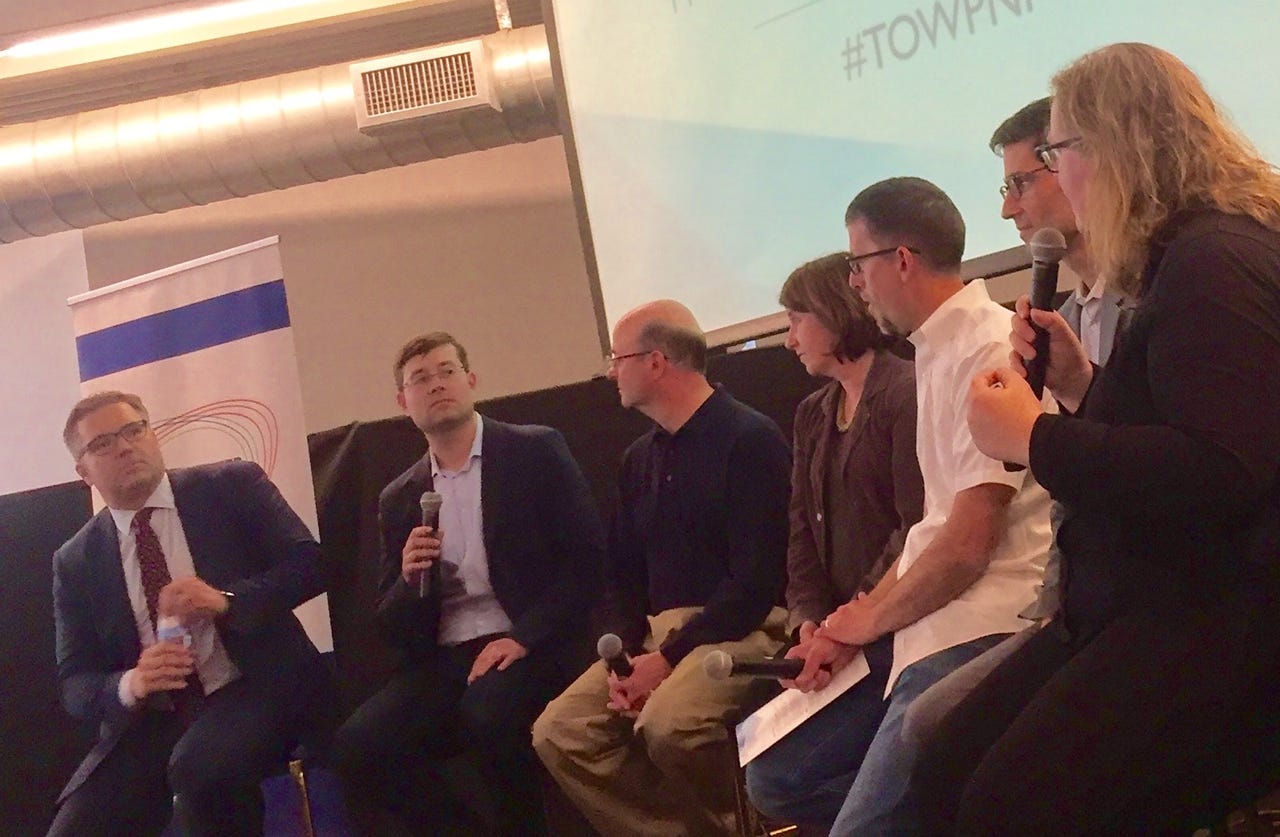Journalism+Silicon Valley: What Balance Of Power?


Silicon Valley tech companies should do more to help media companies get subscribers and revenues - this was the gist from six panelists discussing "Journalism + Silicon Valley: The Balance of Power" at a recent event in San Francisco organized by the Tow Center for Digital Journalists.
The event marked the release of Tow Center's report: "The Platform Press: How Silicon Valley reengineered journalism |" It is a multi-year investigation into "researching the relationship between journalism and social platforms."
However, the topic and the report seemed so old, so not very cutting-edge, and such a waste of time, imho.
Looking to the past...
The media industry has been at least five to seven years behind in understanding the continually changing economics of its business. It's shocking how bad it has been at this analysis. And it's too late now to do anything about it.
Scale is the most important thing and traditional media publishers don't have it. They are even prevented from coming together to discuss common pricing strategies for online content because of anti-trust laws.
High-tech media companies...
A key sign that Tow and media companies do not understand their place in the world is the use of "Platform companies" to describe Facebook, Google and others.
They are high-tech media companies! They publish pages of content with advertising on it. What is not "media company" about that?
By not understanding this important point many media companies such as the New York Times gladly partnered with Google back in the early days when a more balanced power relationship could have been forged. It was a serious error. It's too late now.
PariSoma...
The topic drew a good turnout to the PariSoma co-working space where it was held.
It was my first time seeing Wired's new Editor-in-Chief Nicholas Thompson, the former Editor of NewYorker.com. He speaks fast - a New York minute in about ten seconds. Thompson pointed out that each platform needs a different monetization strategy because each is different in what it allows publishers to do.
Many of the panelists talked about being prevented from directly soliciting subscribers by the platforms and complained they are charged fees and commissions of as much as 70% of the subscription cost.
[The Silicon Valley companies take their content but then make it hard for the publishers to re-invest in new content! A terribly short-sighted strategy.]
Clara Jeffery, editor of Mother Jones said that a recent critically acclaimed undercover investigative report cost more than $350,000 and many months to produce; it generated just $5,000 in online advertising.
[The business model is broken and has been broken for more than a decade. Google and Facebook devalued the revenue value of an online ad and it continues to lose value.]
Nicco Mele, director of the Shorenstein Center and a former publisher, warned that the business model challenge means that the media industry is now in a serious crisis.
[Here is a report on the event from Nausicaa Renner at Columbia Journalism Review: Journalism and Silicon Valley: The balance of power - Columbia Journalism Review]
Foremski's Take:
It's good to see people slowly waking up to the fact that media industry is in crisis. I've been asking for more than a decade: "What happens if the old media dies before the new media learns how to walk?"
The platform companies are media companies but they are run by engineers. Engineers don't value news reporting because they see that there is lots of it around and it is free. Free to sort, edit and distribute.
Engineers won't be able to help the media industry. Some tried, such as Medium - which thought that the problem was better reader formats, tracking and social sharing. It failed and now says it will sign up subscribers.
We desperately need innovation in the media business model - not in creating prettier publishing templates. Non-profit approaches to journalism and handouts from billionaires are not the answer. We need a self-sustaining, thriving, growing media industry.
Without a large professional independent media industry we are in the grips of an uncertain future - a democracy that is vulnerable to corruption and an economy prone to recession. Money buys traffic and without it free speech has the value it describes: zero.
Media crisis continues...
Media companies that create and source their own news and media content cannot survive within the economics of the online media world. And there is no solution in sight.
People won't pay for the media they should be reading but special interest groups will gladly pay for the media they want people to read.
As the independent media industry continues to be diminished by Silicon Valley "platform companies" - the bottomless sources of corruption and abusive power will grow to fill the voids.
Get out of the way of the future summarizes the advice of Silicon Valley to critics. This is not a viable future and Google and the others are blind to it.